Search Posts
Recent Posts
- Rhode Island Weather for June 4, 2025 – Jack Donnelly June 4, 2025
- Sour Grapes time! – Tim Jones (meet Tim at AnimeCon) June 4, 2025
- Lawsuit filed to stop Empire Wind Project by 4 environmental groups and fishermen June 4, 2025
- It is what it is: 6.4.25 – Jen Brien June 4, 2025
- New ALS treatment by PathMaker Neurosystems. Co. funded by RI Life Sciences Hub to come to RI. June 3, 2025
Categories
Subscribe!
Thanks for subscribing! Please check your email for further instructions.

Report says Housing for older and disabled adults should be Rhode Island’s top housing priority
Photo: Pamela Bhatia, Artistic Images
Rhode Island is well known for having a deep percentage of seniors and possibly the most “old-olds” in the nation. On this Mother’s Day it’s noted that nationally, 85% of every 100 women over 40 are estimated by the US Census to be mothers. And we celebrate mothers, today, Mother’s Day, and women involved in raising children we also note the importance of addressing housing needs.
Looking at seniors, 6 out of 10 Rhode Island seniors are women – 32% of seniors live alone. The lifespan for women is greater than that for men.
How is Rhode Island caring for the housing and long term care needs of women especially as they age?
A report was just released and adopted by the Long Term Care Coordinating Council (LTCCC) in Rhode Island titled, “Meeting the Housing Needs of Rhode Island’s Older Adults and Individuals with Chronic Disabilities and Illnesses”.
Nowhere in this report will you find a breakdown of the unique needs of women, but it takes the demographic or older adults combined with individuals with chronic disabilities and illnesses when it speaks to housing and long term care.
The report begins with identifying how LONG TERM HEALTH BEGINS WITH SAFE, AFFORDABLE,
AND ACCESSIBLE HOUSING HOUSING AS HEALTH – noting:
The availability, affordability, and accessibility of housing is widely recognized as a “key social determinant of health,” and an important long term care concern. This is especially true for older adults and individuals with chronic disabilities and illness. State and local policies can make it easier, or more difficult, for the long term care population to remain in community-based housing, without sacrificing safety and access to services.
This report recommends new policy initiatives to address critical housing needs for the state’s older adults and individuals with chronic disabilities and illnesses, including both homeowners and renters, while incorporating existing policies which have been successful, but should be revised or expanded to meet current conditions and needs.
THE LONG TERM CARE POPULATION IN RHODE ISLAND
Rhode Island’s cities and towns are home to more than 200,000 older adults (65 years or older) of whom 38,000 are living with disabilities.
Approximately 111,000 additional Rhode Islanders younger than 65, including 13,000 minor children, are living with disabilities or chronic illnesses.
More than 4,500 adults with intellectual or developmental disabilities live in the state; about 2,300 of them are living with their families, in community settings.
These are the people who comprise our long term care population and they, as well as the caregivers who support their daily lives and health, are the focus of this report.
The full report can be found here:
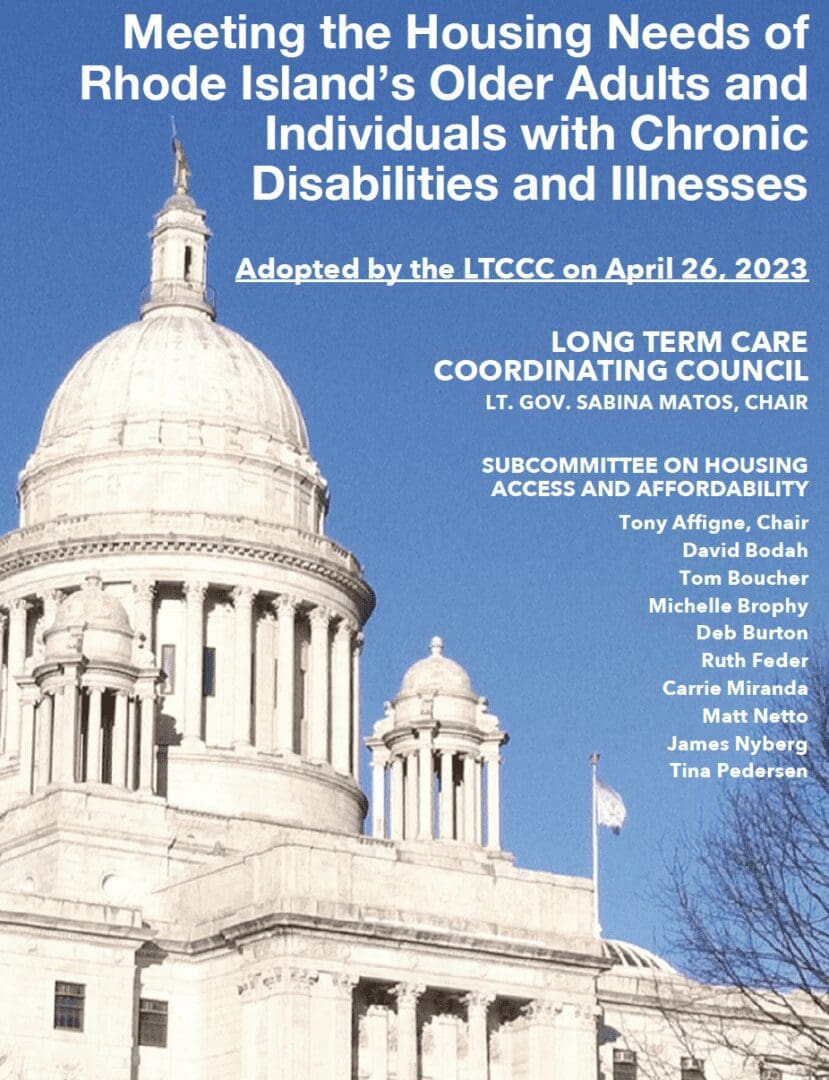
https://rinewstoday.com/wp-content/uploads/2023/05/LTCCC-Housing-Report-Approved21.pdf
Here are its major findings.
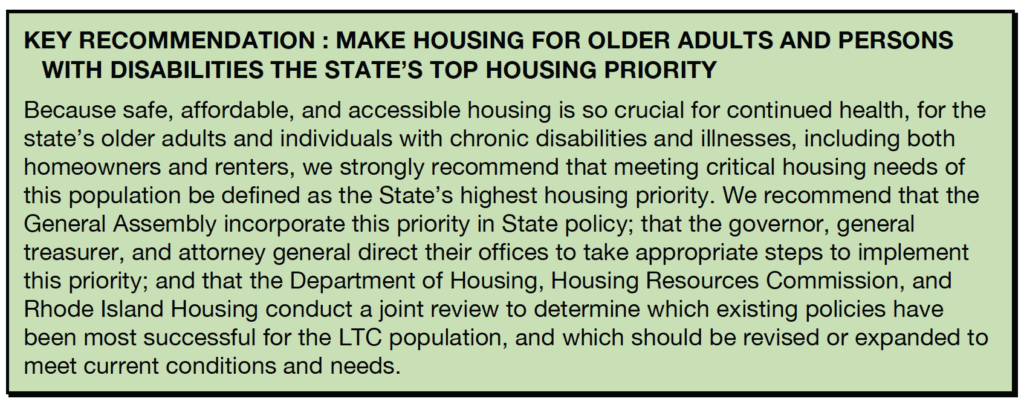
Additionally:
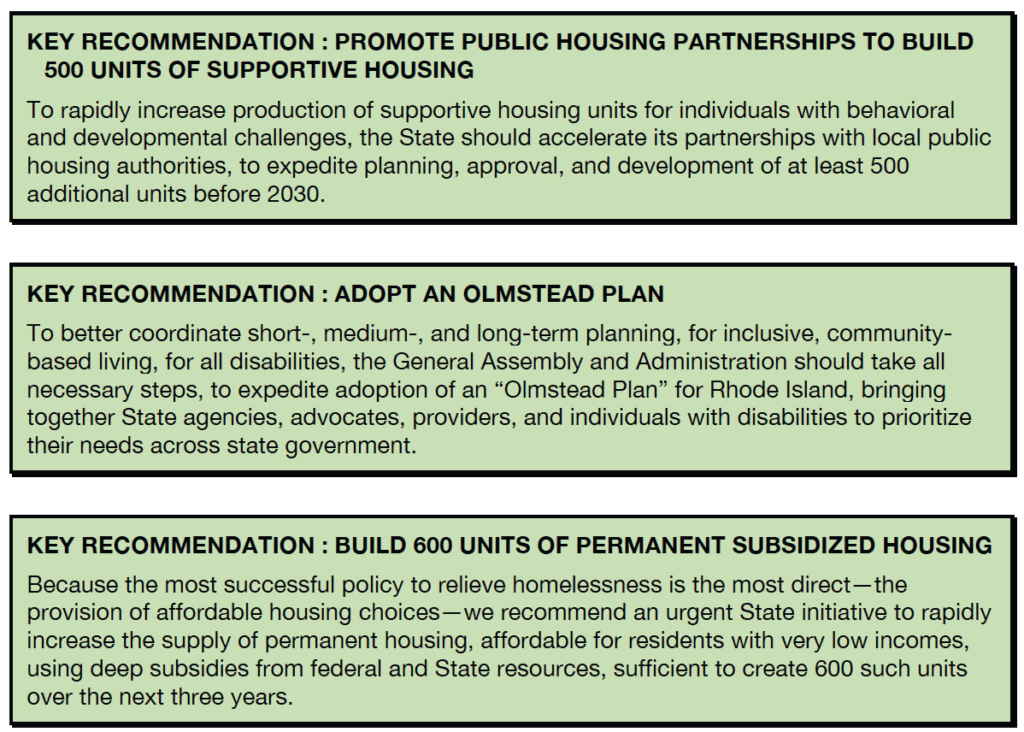
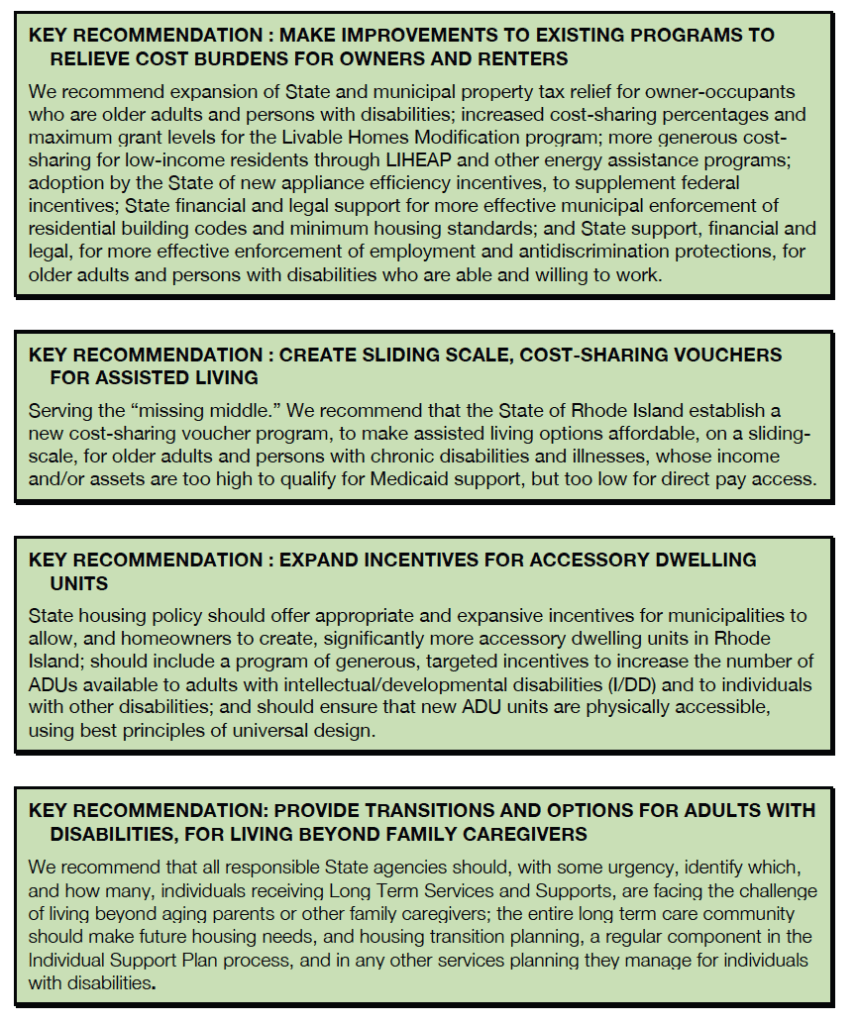
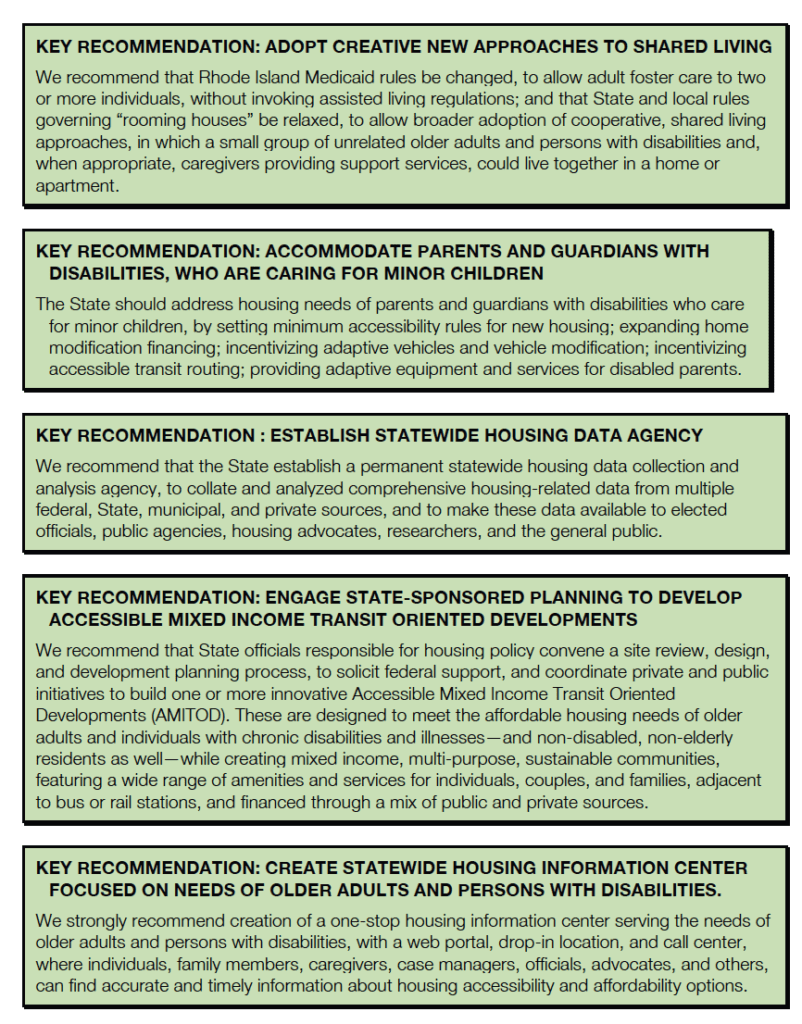
As the state plans for housing for the homeless and affordable housing for those who meet low-income guidelines, we must remember and prioritize the growing population of seniors in Rhode Island, may of whom have lived their entire lives here – many of whom will be women.

Excellent reporting. Glad to see you mentioned women in particular needing attention as they tend to have lower incomes in their older years, and as they generally live longer have a greater needs for long-term support.
Thanks Maureen – when you put a layer over the data for female and older, the need becomes quite dramatic
The first place anywhere I have seen SENIORS mentioned!!!! All about everything and anyone else but!